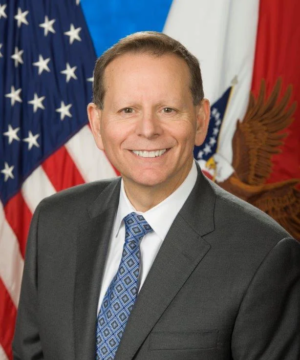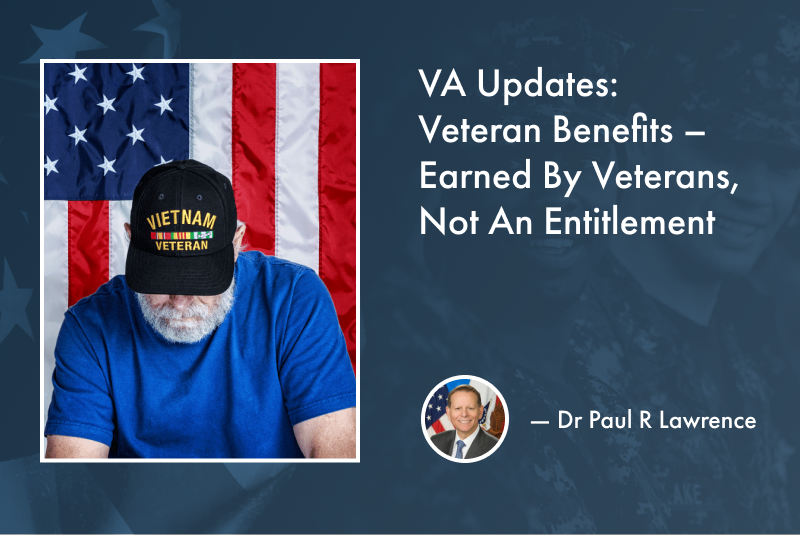Serving in the military has several features. These include solid training, leadership opportunities, and competitive compensation. Generally less recognized are the various monetary veteran benefits from the U.S. Department of Veterans Affairs for those who served honorably. These are earned benefits, not entitlements. Veterans should be aware of these benefits, how they can be accessed, and, most importantly, how they can be used to improve post-service life.

The Most Used Veteran Benefits Include:
• Disability compensation – a tax-free monthly payment based on an injury or disability that occurred while in service. This can be used to offset lost income or expenses.
• GI Bill – provides education support. Serve for three years and earn four years of free college. It can also be used for high-tech apprenticeships, advanced Science, Technology, Engineering, and Math training, and credentials and certificates. Time limitations on when this benefit can be used have been removed.
• No money down home loan guaranty – Veterans can purchase a home with no money down. This is a tremendous advantage over our civilian counterparts, who must save for a down payment prior to purchasing a home. Subject to restrictions, this can be used to purchase a mobile home or farm residence.

Other Veteran Benefits Are:
Veterans Readiness and Employment – counselors are assigned to identify Veteran’s interests and needed training to find stable employment. The identified training is provided through this benefit.
Pension – a means-tested payment for eligible Veterans. This can help Veterans who are heading toward or who are homeless.
Fiduciary – under certain conditions, a Fiduciary will be appointed to manage the Veteran’s financial affairs.
Insurance – VA administers several insurance programs that might be attractive to certain Veterans who cannot purchase similar commercial insurance. This includes Life and Mortgage insurance.
Importantly, if you are not satisfied with a decision about your benefits, there is a new, faster appeal process to have any decision reviewed. If you believe you were improperly denied a benefit or received too low an amount, an appeal may be appropriated.

I often receive these comments and questions when discussing benefits with Veterans and their families:
1. I’m fine and don’t need these.
That may be true when you leave service, but over time “things get worse.” Many conditions that came up in service may become problematic later – for example, hearing or back conditions worsening. It’s better to identify these conditions earlier, while you have the needed documentation, than later when searching for misplaced or lost records is harder and more urgent.
2. Other Veterans are worse off and need the money more than me.
This may be true, but the money for VA benefits is what is called “mandatory spending.” Congress must provide these funds. Money for one Veteran’s benefits does not come at the expense of another Veteran’s benefits. In this situation, Congress must provide for both.
3. I have been out for many years. Is it too late to apply for benefits?
No. It’s never too late. Even if you don’t have your service records, VA will assist you in finding these and other documentation. In addition, there is no penalty for coming back repeatedly to review the appropriateness of your benefits. A good rule of thumb is to review your benefits every three to five years, as conditions generally worsen as we age.
4. I’ve heard the process is complicated. Who can help me?
Service officers are trained and often accredited by VA to help Veterans access their benefits. No-cost help from service officers can be obtained from Veterans Service Organizations such as The American Legion, Disabled American Veterans (DAV), Veterans of Foreign Wars (VFW), and Wounded Warrior Project (WWP). States, through their Departments of Veteran Affairs or Services, also provide no-cost assistance from their service officers. Depending on the state, counties may also have service officers to help Veterans.
5. How can I find out more?
Learn about your benefits by visiting VA.gov or by picking up a copy of my book.
About the Author Paul R. Lawrence
Paul R. Lawrence, Ph.D., served as Under Secretary of Benefits at the U.S. Department of Veterans Affairs from May 2018 to January 2021. He is the author of “Veterans Benefits for You: Get what You Deserve,” available from Amazon.

Read About Other VA Updates
If you enjoyed learning about Veteran Benefits, we invite you to read the stories of VA Updates on our blog. In addition to our profiles of celebrities who served, we share military book reviews, veterans’ service reflections, famous military units and more on the TogetherWeServed.com blog. If you are a veteran, find your military buddies, view historic boot camp photos, build a printable military service plaque, and more on TogetherWeServed.com today.

0 Comments